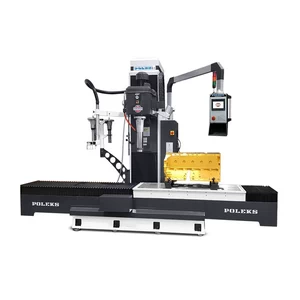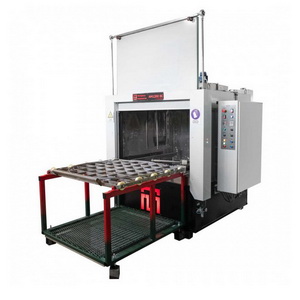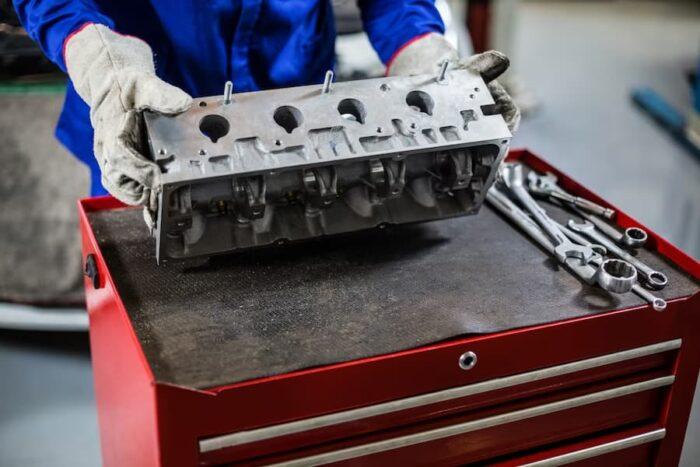How to Clean an Engine Block: A Step-by-Step Guide
Introduction
Cleaning an engine block is an important step in engine maintenance and repair. Over time, engine blocks can accumulate grease, oil, dirt, and rust, which can affect performance and durability. In this article, we will provide a comprehensive guide on how to clean an engine block effectively. We will cover methods for removing grease, oil, and rust from both aluminum and cast iron engine blocks. Additionally, we will discuss cleaning the engine block after machining and before assembly.
Cleaning an Engine Block: Step-by-Step Guide
Follow these steps to clean an engine block thoroughly:
- Prepare the Work AreaChoose a well-ventilated area with proper drainage for the cleaning process. Place a suitable container or tarp beneath the engine block to collect any cleaning solutions or debris.
- Safety PrecautionsBefore starting, ensure you are wearing appropriate safety gear, including gloves and safety glasses, to protect yourself from chemicals and debris.
- Removing Grease and OilTo clean grease and oil off the engine block, you can use the following methods:
- Degreaser: Apply a suitable engine degreaser to the entire engine block. Allow it to penetrate and dissolve the grease and oil. Use a brush or scrubbing pad to agitate the surface, focusing on stubborn areas. Rinse off the degreaser thoroughly with water.
- Steam Cleaning: If available, a steam cleaner can effectively remove grease and oil. Direct the steam to the affected areas while using a brush to scrub away the contaminants. Ensure proper ventilation during this process.
- Cleaning Aluminum Engine BlocksCleaning aluminum engine blocks requires extra care to prevent damage:
- Aluminum-Safe Cleaners: Use aluminum-safe cleaners to avoid chemical reactions that may harm the surface. Follow the instructions provided with the cleaner and rinse thoroughly after cleaning.
- Soft Brushes or Pads: When scrubbing the aluminum surface, use soft-bristled brushes or pads to prevent scratching.
- Cleaning Cast Iron Engine BlocksCast iron engine blocks are more durable, allowing for slightly more aggressive cleaning methods:
- Wire Brushes: Utilize wire brushes to remove rust, dirt, and debris from cast iron surfaces. Scrub gently to avoid damaging the block.
- Rust Dissolvers: Apply a rust dissolver to areas with rust stains. Allow the dissolver to penetrate the rust, then scrub with a wire brush. Rinse the block thoroughly after removing the rust.
- Cleaning After MachiningAfter machining an engine block, it is crucial to remove any metal shavings, coolant residue, and debris:
- High-Pressure Water: Use a high-pressure washer to flush the engine block, ensuring that all loose debris and contaminants are removed. Pay close attention to water passages and galleries.
- Solvent Rinse: After the initial flush, perform a solvent rinse using a suitable engine degreaser or parts cleaner. This will dissolve any remaining residue. Rinse thoroughly with water to remove the solvent.
- Cleaning Before AssemblyBefore assembling the engine, it is recommended to give the engine block a final cleaning:
- Solvent Soak: Submerge the engine block in a parts cleaner or solvent bath to remove any remaining contaminants. Allow the block to soak for the recommended time, then brush and rinse thoroughly.
- Drying: Ensure the engine block is completely dry before proceeding with assembly. Use compressed air or a clean, lint-free cloth to remove any moisture.
FAQ
How often should I clean my engine block?
Cleaning the engine block is typically performed during engine maintenance or when rebuilding an engine. The frequency depends on the usage and condition of the engine. It is recommended to clean the engine block whenever significant dirt, oil, or rust buildup is present.
Can I use household cleaners for cleaning an engine block?
It is not advisable to use household cleaners for engine block cleaning. Engine-specific degreasers, aluminum-safe cleaners, and rust dissolvers are formulated to effectively clean engine blocks without causing damage.
Can I use a pressure washer to clean an engine block?
Using a pressure washer can be effective for flushing debris and loose contaminants from an engine block. However, it is important to avoid directing high-pressure water into sensitive areas or water passages that could cause damage.
Can I clean the engine block while it is still in the vehicle?
It is possible to clean certain areas of the engine block while it is installed in the vehicle. However, for a thorough cleaning, it is recommended to remove the engine block from the vehicle to access all surfaces properly.
Conclusion
Cleaning an engine block is a vital part of engine maintenance and repair. By following the step-by-step guide provided, you can effectively clean your engine block, remove grease, oil, and rust, and ensure optimal performance and longevity. Remember to use appropriate cleaning products, take necessary safety precautions, and consult professional assistance if needed.




